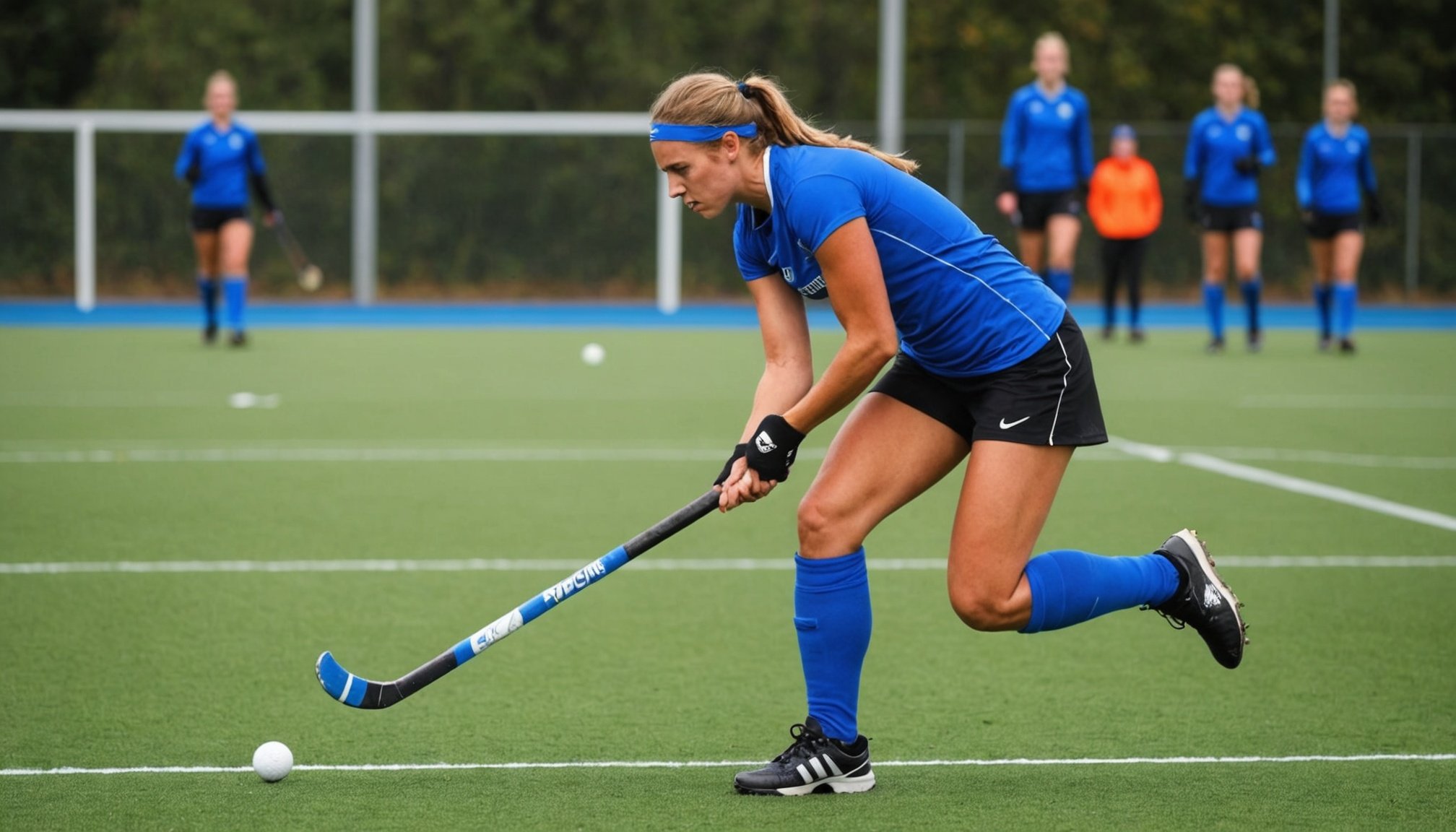Importance of Off-Season Training
Off-season training is a vital period for field hockey athletes aiming to optimise their performance. It serves as the bridge between the previous season’s results and the upcoming challenges. By focusing on off-season training, athletes can enhance their athletic conditioning significantly. This phase allows players to develop various physical attributes such as strength, endurance, and agility, which are crucial for field hockey.
Field hockey performance is closely linked to the quality of preparation undertaken during the off-season. This period allows athletes to improve their skills without the immediate pressure of competitive matches. Such a training regimen often includes structured workouts targeting specific areas, which leads to noticeable improvements in performance.
In parallel : Ultimate guide to top gel blasters for all player styles
Additionally, off-season training plays a critical role in injury prevention. By strengthening muscles and conditioning the body, athletes are less prone to injuries during the intense in-season matches. This preventive measure ensures players maintain consistent participation without setbacks.
Creating a solid foundation in the off-season is essential for in-season success. Field hockey players who invest time in systematic training can better handle the physical demands of competitive play. Off-season work equips athletes with the stamina and resilience needed to excel throughout the season. Effective planning and dedication during this time are the keys to reaching peak performance levels.
This might interest you : Top sniper gel blasters for unmatched precision and stealth
Fitness and Conditioning Strategies
Maintaining peak physical condition is crucial for athletes. Conditioning exercises are a cornerstone for improving performance. These exercises include a blend of strength training, endurance building, and enhancing flexibility and mobility.
Key Strength Training Techniques
Strength training is fundamental to any conditioning program, particularly for athletes requiring power and agility. Techniques such as deadlifts, squats, and bench presses target major muscle groups, building muscle mass and enhancing overall power. Incorporating these exercises in a routine promotes increased muscle strength and stability, aligning with specific physical demands in sports.
Cardiovascular Endurance Workouts
Enhancing cardiovascular endurance is equally important. To achieve this, workouts like interval running or cycling can be integrated into training regimens. These workouts aim to enhance VO2 max, sustaining energy levels and improving performance over extended periods.
Flexibility and Mobility Exercises
Flexibility and mobility exercises are essential to prevent injuries and ensure optimal movement. Incorporating yoga and dynamic stretching into daily routines can significantly improve joint flexibility and functional mobility. This aspect of training complements strength and endurance exercises, creating a well-rounded fitness routine.
Balancing these elements allows for tailored fitness regimens, tracking progress, and setting achievable fitness goals, vital for field hockey athletes and others aiming for excellence.
Skill Development and Maintenance
Achieving proficiency in football demands relentless skill training. Players must focus on enhancing and sustaining various abilities crucial for success on the field.
Essential Ball Control Drills
Mastery of ball control is vital. Incorporate these drills into your routine:
- Cone Dribbling: Navigate through cones set at varying distances to improve agility and precise footwork.
- Juggling: Use this drill to enhance concentration and touch. It refines coordination and boosts balance.
These exercises not only boost ball familiarity but also uplift overall performance.
Game Situation Simulations
Replicating match conditions during practice enriches one’s tactical understanding:
- Small-Sided Games: These offer an opportunity to mimic real pressures in a condensed setting, enhancing decision-making and speed.
- Positional Play: Practicing specific roles sharpens situational awareness and adapts players to diverse scenarios.
Such simulations bridge the gap between training and actual matches, prepping individuals for unexpected on-field challenges.
Partner Work and Team Practices
Teamwork is a cornerstone of skill development. Engaging in practice sessions with teammates fosters communication and synchronization:
- Passing Drills: These fortify trust and timing between players.
- Defensive Strategies: Collaborate to devise tactics, improving team cohesion.
Incorporating diverse drills and fostering teamwork not only enrich skill sets but also build robust, well-rounded athletes.
Nutrition and Recovery
Understanding the intricate balance between sports nutrition and recovery strategies is vital for field hockey athletes. Fueling the body adequately through careful meal planning can significantly impact performance and recuperation.
In the realm of nutritional guidelines, it is crucial for athletes to consume a well-rounded diet that incorporates carbohydrates, proteins, and fats. Carbohydrates serve as the primary energy source, especially vital during peaks of performance. Proteins play a pivotal role in muscle repair and recovery. Including healthy fats ensures long-lasting energy and supports overall bodily functions. Adjusting these macronutrients to match training intensity is key.
Proper hydration is another cornerstone of effective recovery. Water regulates body temperature and aids in nutrient transportation, directly influencing performance. Athletes should consistently replenish fluids before, during, and after activity to prevent dehydration and optimize recovery.
Effective meal prepping during the off-season is an excellent strategy. It allows athletes to efficiently maintain nutritional balance and reduce daily stress. Preparing meals in advance ensures that nutrition is consistent, aiding in maintaining energy levels and supporting muscle repair.
By prioritizing these recovery strategies within sports nutrition, field hockey athletes can enhance their performance and minimize downtime due to fatigue or injury.
Mental Preparation Techniques
In the world of sports, mental training is just as crucial as physical conditioning. Athletes often employ a variety of mental preparation techniques to enhance their performance, whether it be through visualization or improving their focus.
Techniques for Mental Resilience
Developing mental resilience is essential. One effective method is the practice of mindfulness, which involves staying present and fully engaged in the moment. Athletes can also benefit from positive self-talk, which helps in building confidence. Techniques like these foster a resilient mindset, allowing individuals to bounce back from setbacks and maintain focus under pressure.
Visualization Practices for Success
Visualization is a powerful tool that can greatly influence success in sports. Athletes often imagine themselves excelling in their performances, which helps in sharpening their focus and preparing their minds for real competition. By rehearsing successful outcomes in their minds, athletes build a mental picture that aids in meeting their objectives more easily.
Goal Setting for Off-Season
Setting goals during the off-season is vital for continuous improvement. By clearly defining what they want to achieve, athletes can tailor their training. It involves setting specific, measurable goals that can be tracked over time. This not only maintains motivation but also ensures they are prepared mentally and physically for the upcoming season’s challenges.
Success Stories and Insights
Field hockey is a sport where dedication and strategic planning often result in success. Experienced field hockey athletes provide invaluable athlete insights into what it takes to excel. One such insight is the emphasis on maintaining peak physical condition throughout the year, not just during the season. Athletes stress the importance of off-season training to enhance skills and stamina, ensuring they return to the field even stronger.
Coaches offer coaching tips based on years of experience, recommending a balance between rest and rigorous practice. They highlight the significance of structured off-season schedules, incorporating both skill drills and cross-training activities, to prevent burnout and improve performance. Coaches agree that fostering a positive and motivational environment is key to maintaining athlete enthusiasm and commitment.
Success stories often reveal that many triumphs stem from understanding these lessons learned. Athletes who took guidance seriously found themselves leading their teams to noteworthy victories. One common thread in these tales is the crucial role of both mental preparation and physical endurance. By sharing experiences, athletes and coaches pave the path for aspiring players, providing an enriched perspective on achieving excellence in field hockey. Embedding these insights into routine practice could significantly benefit those aiming to replicate such success.
Training Schedule and Planning
Establishing a Training Schedule requires thoughtful Planning and strategic Time Management. Creating an Effective Training Plan involves setting clear and attainable goals tailored to your specific needs. Begin by evaluating your current fitness level and identifying areas needing improvement. This helps in designing structured workouts that target those weaknesses while enhancing overall performance.
Weekly and Monthly Training Goals
Breaking down your training into Weekly and Monthly Goals ensures a gradual and sustained progression. Short-term objectives keep you focused and motivated, while long-term milestones provide a vision for what you aim to achieve. Balance is key, so ensure your schedule includes a mix of strength, endurance, and flexibility exercises.
Adjusting Training Intensity and Focus
As you progress, it’s vital to periodically reassess your plan. Adjust the Training Intensity and focus as needed to avoid plateaus and overtraining. Recovery is equally important; integrating rest days helps prevent burnout and injuries. Consider seasonal variations, such as structuring off-season routines that emphasize recuperation and skill development.
Implement strategies for maintaining motivation, like setting mini-challenges or varying workout environments. This multi-faceted approach not only optimizes performance but also keeps the training journey enjoyable and engaging. By remaining adaptable and committed, you’ll maximize the benefits of your training efforts.
Common Pitfalls to Avoid
Training mistakes are common, especially during the off-season when athletes might be eager to improve their performance. One significant risk is overtraining, where the desire to push limits can lead to unintended negative effects. Signs of overtraining include persistent fatigue, prolonged soreness, decreased performance, and mood disturbances. These often occur because the body is not allowed sufficient time to rest and recover. To avoid burnout, it is crucial to acknowledge these signs early.
Maintaining balance by incorporating injury prevention techniques into your routine is essential. This means integrating rest days, varying workouts, and ensuring adequate nutrition. Listening to your body is key. If you experience unusual pain or discomfort, it may be a signal to adjust your training intensity or approach. Failure to acknowledge these cues can lead to chronic injuries, setting back progress significantly.
Another training mistake is neglecting flexibility and mobility workouts, which are vital components of an effective training regimen. These help in reducing the risk of injuries by ensuring muscles and joints are well-prepared for the demands of sports activities. By adopting a holistic approach, including strength, endurance, and recovery, athletes can enhance performance while safeguarding their overall well-being.










